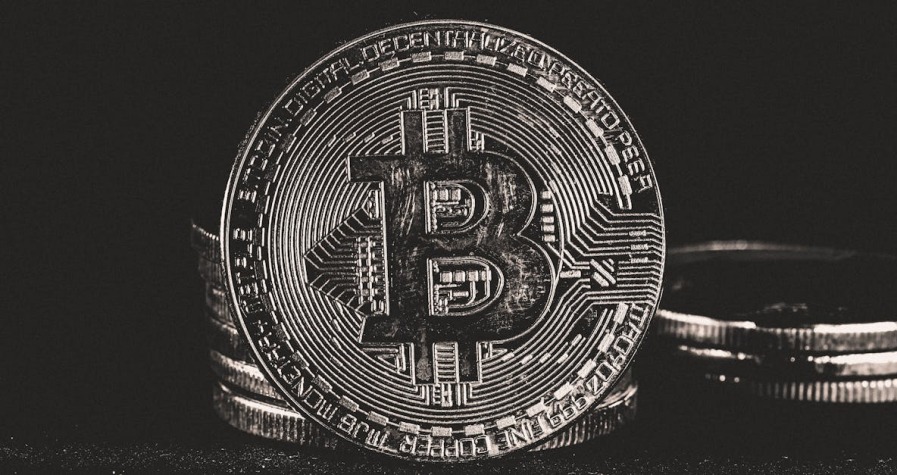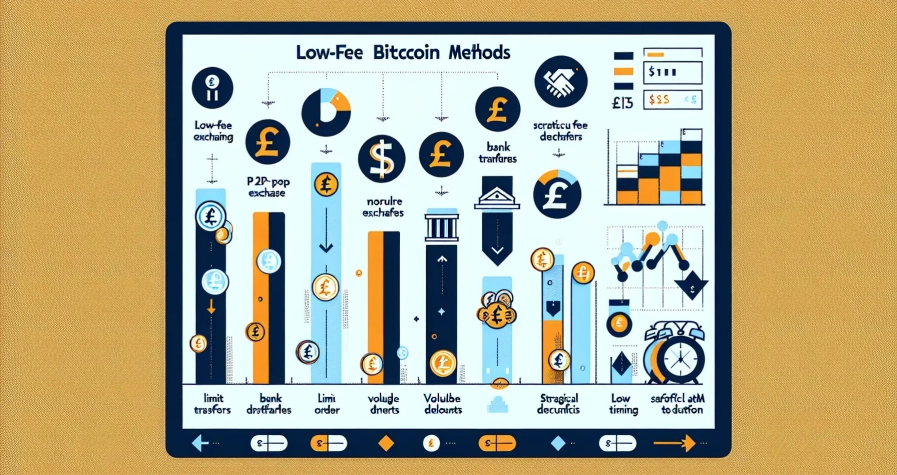You’ve watched your crypto portfolio grow and now you’re ready to convert those digital gains into real money in your bank account. Whether you’re cashing out profits or simply need access to funds you’ll want to ensure you’re doing it safely and cost-effectively.
Converting cryptocurrency to pounds sterling isn’t as complicated as it might seem but there are several methods available each with different fees timeframes and security considerations. From centralised exchanges to peer-to-peer platforms and crypto debit cards you have multiple options to choose from.
The key is understanding which method works best for your specific situation whilst minimising fees and maximising security. Let’s explore the most reliable ways to transfer your crypto holdings into your UK bank account.
Understanding Crypto Withdrawal Options
Your crypto withdrawal options determine how quickly you access your funds and the fees you pay during conversion. Each method offers distinct advantages depending on your transaction size, urgency requirements, and security preferences.
Centralised exchanges provide the most straightforward crypto-to-bank transfers in the UK. Platforms like Coinbase, Binance UK, and Kraken connect directly to your bank account through Faster Payments or SEPA transfers. These exchanges typically charge withdrawal fees between 0.1% to 1.5% plus fixed processing fees of £1-£5 per transaction.
Peer-to-peer platforms such as LocalBitcoins and Paxful allow you to sell crypto directly to other users. You set your own exchange rates and choose payment methods including bank transfers, PayPal, or cash deposits. P2P platforms charge trading fees of 1% to 3% but offer greater pricing flexibility and privacy protection.
Crypto debit cards from providers like Revolut, Crypto.com, and Nexo enable instant spending of your digital assets at any merchant accepting Visa or Mastercard. Your crypto converts automatically at the point of sale, eliminating traditional withdrawal steps entirely. Card providers charge foreign exchange fees of 0.5% to 2% for currency conversion.
Direct bank partnerships through services like Coinbase Card and Binance Pay allow you to link crypto wallets directly to UK current accounts. Your cryptocurrency converts to pounds sterling automatically when making purchases or ATM withdrawals. Processing times range from instant conversion to 2-3 business days for bank settlement.
OTC trading desks cater to high-value transactions exceeding £50,000. Services like Cumberland, Genesis, and Circle Trade provide personalised rates and dedicated support for large crypto liquidations. OTC platforms charge negotiated fees typically ranging from 0.25% to 0.75% depending on transaction volume and market conditions.
| Withdrawal Method | Processing Time | Typical Fees | Minimum Amount |
|---|---|---|---|
| Centralised Exchanges | 1-3 business days | 0.1%-1.5% + £1-£5 | £10-£50 |
| P2P Platforms | 15 minutes-24 hours | 1%-3% | £20-£100 |
| Crypto Debit Cards | Instant | 0.5%-2% | £1 |
| Bank Partnerships | Instant-3 business days | 0.5%-1.2% | £1-£10 |
| OTC Trading Desks | 1-2 business days | 0.25%-0.75% | £50,000+ |
Your choice between these crypto withdrawal methods depends on your transaction frequency, amount thresholds, and tolerance for processing delays. Consider combining multiple options to optimise costs across different transaction sizes and timing requirements.
Choosing the Right Exchange Platform
Selecting the appropriate exchange platform determines your withdrawal fees, processing times, and overall user experience when converting crypto to pounds sterling. Your choice between centralised exchanges and peer-to-peer platforms significantly impacts the speed and cost of accessing your funds.
Centralised Exchanges vs Peer-to-Peer Platforms
Centralised exchanges act as trusted intermediaries that manage transactions and custody of funds whilst offering streamlined fiat withdrawal options. These platforms provide simplified interfaces with dedicated customer support but charge various fees including trading, deposit, and withdrawal charges.
Peer-to-peer platforms connect buyers and sellers directly without a middleman, typically offering lower fees than centralised alternatives. You’ll encounter variable processing times depending on counterparty interactions and must engage in user-to-user negotiations to complete transactions.
| Aspect | Centralised Exchanges | Peer-to-Peer Platforms |
|---|---|---|
| User Experience | Simplified interface with customer support | Requires negotiation and vigilance |
| Fees | Trading, deposit, and withdrawal fees | Generally lower fees but varies by platform |
| Transaction Speed | Faster settlements, often within hours | Variable speeds depending on counterparties |
| Security | Central custody with regulatory oversight | User-controlled funds with higher personal responsibility |
Comparing Fees and Processing Times
Crypto.com charges a withdrawal fee of £1.90 per transaction with daily withdrawal limits reaching £100,000 and monthly limits extending to £500,000. The platform utilises the UK’s Faster Payments Service (FPS) for GBP withdrawals, completing transactions within hours.
Blockchain.com also employs FPS for GBP withdrawals, requiring users to link their bank accounts by sending a small verification deposit first. Withdrawal processing typically takes under an hour though completion times aren’t guaranteed.
P2P platforms often feature lower fees than centralised exchanges but deliver variable withdrawal speeds based on buyer-seller interactions. Trading fees on these platforms range from 1% to 3%, whilst centralised exchanges typically charge between 0.1% and 1.5% for conversions.
Setting Up Your Bank Account for Crypto Withdrawals
Setting up your bank account for cryptocurrency withdrawals requires proper verification and linking procedures to ensure secure transfers. Most crypto platforms mandate that your registered bank account matches your exchange profile name to prevent fraud and comply with regulatory requirements.
Verifying Your Identity and Account Details
Complete Know Your Customer (KYC) procedures on your chosen exchange before attempting any fiat withdrawals. These verification processes require you to submit official identification documents and proof of address to comply with anti-money laundering regulations that govern regulated platforms.
Upload clear copies of your passport or driving licence alongside recent utility bills or bank statements dated within the past three months. Most exchanges process these verifications within 24-48 hours, though some platforms may require additional documentation for higher withdrawal limits.
Ensure your bank account name exactly matches the name registered on your crypto exchange account. Platforms reject withdrawal requests to third-party accounts as standard anti-fraud protocol, meaning you cannot withdraw funds to accounts belonging to family members or business partners.
Link your bank account by making a small initial deposit from your bank to the crypto platform. Crypto.com requires an FPS deposit in GBP to verify account ownership, whilst other exchanges may use alternative verification methods such as micro-deposits or open banking connections.
Only UK residents with fully verified accounts can withdraw GBP via Faster Payments Service (FPS) or similar domestic transfer methods. International users must typically rely on SWIFT transfers, which incur higher fees and longer processing times.
Understanding Banking Regulations and Limits
Withdrawal limits vary significantly across different crypto platforms and account tiers. Crypto.com imposes a minimum GBP 70 withdrawal requirement with daily limits of GBP 100,000 and monthly limits of GBP 500,000, whilst charging GBP 1.90 per withdrawal transaction.
| Platform Feature | Standard Limits | Premium/Prime Limits |
|---|---|---|
| Daily Withdrawal | GBP 100,000 | Higher limits available |
| Monthly Withdrawal | GBP 500,000 | Increased allowances |
| Minimum Withdrawal | GBP 70 | Same requirement |
| Transaction Fee | GBP 1.90 | Reduced or waived fees |
Transfers typically utilise Faster Payments Service (FPS) in the UK, which completes most transactions within one hour though timing isn’t guaranteed during peak periods or technical maintenance windows. Weekend and bank holiday transfers may experience delays until the next working day.
Some traditional banks reject crypto-related transfers due to internal policies against digital asset transactions. If your bank blocks these transfers, consider switching to crypto-friendly banks like Starling Bank, Monzo, or Revolut, which generally accept cryptocurrency exchange transfers without issues.
Regulated exchanges with established banking partnerships experience fewer transfer rejections compared to newer or offshore platforms. Major exchanges like Coinbase, Binance UK, and Kraken maintain strong relationships with UK banking institutions, resulting in smoother withdrawal processes and reduced transaction failures.
Step-by-Step Guide to Cashing Out Cryptocurrency
Converting your cryptocurrency holdings into pounds sterling involves a systematic approach that ensures security and compliance with UK regulations. This guide walks you through each stage of the withdrawal process from preparation to completion.
Preparing Your Crypto Holdings
You must first organise your cryptocurrency assets before initiating any withdrawal process. Crypto stored on exchanges allows you to proceed directly with selling orders, whilst crypto held in private wallets requires additional steps for transfer.
Exchange-Based Holdings:
- Access your exchange account dashboard
- Verify your account balance matches expected amounts
- Check current market rates for optimal selling timing
- Review any pending transactions or holds on your account
Wallet-Based Holdings:
- Register an account on a reputable crypto exchange that supports your specific cryptocurrency
- Complete identity verification (KYC) procedures as required
- Generate a deposit address for your cryptocurrency on the exchange
- Transfer your crypto from your private wallet to the exchange wallet
- Wait for network confirmations (typically 3-6 confirmations for Bitcoin, 12 for Ethereum)
Security Checklist Before Transfer:
- Enable two-factor authentication on your exchange account
- Verify withdrawal addresses using small test transactions
- Document transaction IDs for record-keeping purposes
- Check network fees to avoid unnecessary charges during peak congestion
Executing the Withdrawal Process
The withdrawal process transforms your cryptocurrency into fiat currency and transfers it to your UK bank account. Banks linked to your exchange profile receive priority processing, whilst new bank accounts require additional verification steps.
Converting Crypto to Fiat:
- Place a market or limit sell order for your desired cryptocurrency amount
- Select GBP as your target fiat currency
- Review current exchange rates and applicable trading fees (typically 0.1% to 1.5%)
- Confirm the sell order and monitor execution status
- Verify your GBP balance reflects the completed transaction
Bank Transfer Setup:
- Navigate to the withdrawal or cash-out section of your exchange
- Link your UK bank account by providing sort code and account number
- Verify account ownership through a small deposit (usually £0.01 to £1.00)
- Wait for verification confirmation (typically 1-3 business days)
| Platform | Minimum Withdrawal | Daily Limit | Processing Time | Fee |
|---|---|---|---|---|
| Crypto.com | £70 | £100,000 | 1 hour (FPS) | £1.90 |
| Coinbase | £10 | £50,000 | Same day | £0.15 |
| Binance UK | £10 | £50,000 | 1-2 hours | Free |
| Kraken | £5 | £25,000 | Same day | £1.75 |
Final Transfer Steps:
- Enter your withdrawal amount within platform limits
- Select your verified bank account from the dropdown menu
- Double-check recipient details match your bank account exactly
- Review withdrawal fees and expected arrival time
- Confirm the transaction with your authentication method
- Save the transaction reference number for tracking purposes
- Track transfer status through your exchange dashboard
- Monitor your bank account for incoming payments
- Verify the received amount matches your withdrawal minus fees
- Contact customer support immediately if transfers face delays beyond stated timeframes
Tax Implications of Crypto Withdrawals in the UK
Cashing out cryptocurrency triggers specific tax obligations that affect your overall withdrawal amount and require careful consideration. You face Capital Gains Tax (CGT) when converting crypto to pounds sterling if your total gains exceed the annual exemption of £6,000 for the 2025/26 tax year.
Capital Gains Tax on Crypto Sales
Capital Gains Tax applies to the difference between your cryptocurrency’s purchase price and sale price when you convert it to fiat currency. You calculate this gain by subtracting the original cost basis from the final sale amount, including any fees incurred during the transaction.
The CGT rates depend on your total taxable income for the year:
| Income Level | CGT Rate | Application |
|---|---|---|
| Basic rate taxpayers | 10% | Total income under £50,270 |
| Higher rate taxpayers | 20% | Total income over £50,270 |
| Additional rate taxpayers | 20% | Total income over £125,140 |
Income Tax on Crypto Earnings
Cryptocurrency received as income faces different tax treatment than capital gains. Mining rewards, staking yields, airdrops, and employment payments in crypto count as taxable income at the time you receive them.
Your crypto income combines with other earnings and faces Income Tax at these rates:
- Personal allowance: £0 tax on income up to £12,570
- Basic rate: 20% tax on income from £12,571 to £50,270
- Higher rate: 40% tax on income from £50,271 to £125,140
- Additional rate: 45% tax on income above £125,140
Taxable Events Beyond Bank Withdrawals
Tax obligations extend beyond simple cash-outs to your bank account. Trading one cryptocurrency for another creates a taxable event, as does using crypto to purchase goods or services. Each transaction requires calculation of gains or losses based on the pound sterling value at the time of the exchange.
Gifting cryptocurrency to others also triggers CGT calculations, except for transfers between spouses or civil partners. These inter-spousal transfers occur at no gain/no loss, deferring the tax liability until the recipient eventually disposes of the crypto.
Record-Keeping Requirements
HMRC requires detailed transaction records to calculate your tax liability accurately. You must maintain records of purchase dates, sale dates, transaction amounts in both crypto and pounds sterling, and associated fees for each transaction.
Essential documentation includes:
- Exchange statements showing buy and sell orders
- Wallet addresses and transaction hashes
- Fee receipts from platforms and networks
- Records of crypto-to-crypto trades
- Documentation of any crypto received as income
Minimising Tax Liability Legally
You can reduce your crypto tax burden through legitimate strategies that work within HMRC guidelines. Using your annual CGT exemption of £6,000 allows you to realise gains without tax consequences, making it beneficial to strategically time your withdrawals across tax years.
Capital losses from cryptocurrency investments offset capital gains pound-for-pound, reducing your overall tax liability. You can carry forward unused losses to future tax years, providing ongoing tax benefits for your crypto activities.
Timing withdrawals to stay within lower tax brackets prevents pushing your income into higher rate bands, particularly important if you receive regular crypto income from mining or staking activities.
Common Challenges and How to Overcome Them
Cashing out cryptocurrency to your UK bank account presents specific hurdles that can delay or block your withdrawals. Understanding these challenges beforehand allows you to navigate the process smoothly and avoid common pitfalls.
Dealing with Rejected Transactions
Banks frequently reject transfers from cryptocurrency exchanges when account details don’t match or when they’ve flagged crypto-related transactions. Your bank account name must match your exchange profile exactly to prevent automatic rejection by fraud detection systems.
Preventing rejections:
- Verify your linked bank account details match your exchange profile information precisely
- Choose FCA-regulated exchanges like Coinbase Pro or Kraken UK that banks recognise as compliant
- Maintain comprehensive transaction records showing the legal source of your crypto funds
- Contact your bank beforehand to inform them about incoming crypto-related transfers
Responding to blocked accounts:
- Contact your bank immediately if they freeze your account or reject transfers
- Provide documentation proving the legitimate origin of your cryptocurrency holdings
- Submit bank statements, exchange transaction histories and tax records as evidence
- Consider switching to crypto-friendly banks like Starling Bank or Monzo if traditional banks consistently reject transfers
- Consult legal advice if your account remains blocked despite providing proper documentation
Managing Large Withdrawal Amounts
Large cryptocurrency withdrawals trigger additional scrutiny from both banks and exchanges, requiring strategic planning to avoid complications. Banks impose daily transfer limits that may block substantial amounts, whilst crypto exchanges often charge higher fees for large transactions.
Withdrawal limits across major UK banks:
| Bank | Daily Online Limit | Daily Transfer Limit | Large Transfer Processing |
|---|---|---|---|
| Barclays | £50,000 | £100,000 | Manual review required |
| HSBC | £25,000 | £50,000 | Branch approval needed |
| NatWest | £20,000 | £50,000 | Enhanced verification |
| Lloyds | £25,000 | £100,000 | 24-hour hold period |
Strategies for large withdrawals:
- Split withdrawals into smaller batches spread across multiple days to stay within bank limits
- Reserve 20-40% of your withdrawal amount for Capital Gains Tax obligations on disposals exceeding £6,000
- Use multiple bank accounts to distribute large amounts and reduce single-account risk
- Time withdrawals during market stability to avoid price fluctuations affecting your final GBP amount
- Calculate total fees including exchange charges (typically 0.25-1.5%) and bank transfer fees before proceeding
- Check your exchange’s daily and monthly withdrawal limits before initiating large transfers
- Contact customer support for exchanges to pre-approve large withdrawals and avoid automatic holds
- Consider OTC (Over-the-Counter) trading desks for withdrawals exceeding £100,000 to get better rates
- Maintain at least 48-72 hours processing time buffer for large withdrawals during market volatility
Security Best Practices When Cashing Out
Trading on reputable platforms forms the foundation of secure crypto withdrawals. Platforms like Crypto.com, Coinbase, Kraken, and Binance maintain established security protocols and regulatory compliance. These exchanges implement multi-layered security measures including cold storage for user funds and regular security audits.
Two-factor authentication (2FA) protects your account from unauthorised access during withdrawal processes. Enable 2FA on both your exchange account and email address to create multiple security barriers. SMS-based 2FA offers basic protection whilst authenticator apps like Google Authenticator provide enhanced security against SIM-swapping attacks.
Complex passwords prevent brute-force attacks on your crypto accounts. Create unique passwords containing uppercase letters, lowercase letters, numbers, and special characters for each platform you use. Password managers like Bitwarden or 1Password generate and store secure passwords whilst eliminating password reuse across multiple sites.
Withdrawal address whitelisting restricts fund transfers to pre-approved bank accounts. Most exchanges allow you to specify approved withdrawal destinations, preventing hackers from redirecting your funds to unauthorised accounts. Configure this feature immediately after account verification to establish secure withdrawal channels.
Phishing attacks target crypto users through fake websites and fraudulent communications. Verify website URLs match official platform addresses before entering login credentials. Official communications arrive through verified channels within your exchange account rather than unsolicited emails or text messages.
Cold storage protects large cryptocurrency holdings before initiating withdrawals. Hardware wallets like Ledger Nano X or Trezor Model T store your private keys offline, eliminating online hacking risks. Transfer only the required amount to exchanges for cashing out whilst maintaining the majority of holdings in cold storage.
Escrow services provide protection for peer-to-peer cryptocurrency sales. Platforms like LocalBitcoins offer escrow protection that holds cryptocurrency until payment confirmation occurs. The escrow system releases funds only after verifying legitimate payment transfers to your bank account.
Payment verification prevents fraudulent P2P transactions through forged confirmation screenshots. Contact your bank directly to confirm payment receipt rather than relying on payment screenshots or instant messages from buyers. Bank statements provide definitive proof of received payments before releasing cryptocurrency from escrow.
| Security Measure | Protection Level | Implementation Time |
|---|---|---|
| Two-Factor Authentication | High | 5 minutes |
| Password Manager | Medium | 15 minutes |
| Withdrawal Whitelisting | High | 24 hours |
| Cold Storage Setup | Very High | 30 minutes |
| Escrow Services | High | Per transaction |
Account monitoring alerts detect suspicious activities during withdrawal processes. Configure email and SMS notifications for login attempts, withdrawal requests, and account changes. Immediate alerts enable rapid response to unauthorised access attempts before significant financial losses occur.
Conclusion
You’ve now got the knowledge to confidently convert your cryptocurrency holdings into pounds sterling whilst minimising costs and maximising security. Remember that there’s no one-size-fits-all approach – your choice between centralised exchanges peer-to-peer platforms or crypto debit cards should align with your transaction size security preferences and urgency requirements.
The key to successful crypto withdrawal lies in proper preparation. You’ll need to complete KYC verification choose crypto-friendly banking partners and maintain detailed records for tax purposes. Don’t forget that Capital Gains Tax applies to your crypto conversions and keeping thorough documentation will save you headaches during tax season.
Start small with your first withdrawals to test the process and gradually increase amounts as you become more comfortable. By following the security best practices outlined and staying informed about regulatory changes you’ll be well-positioned to manage your crypto-to-fiat conversions effectively.
Frequently Asked Questions
What are the main methods to convert cryptocurrency to pounds sterling?
The primary methods include centralised exchanges (Coinbase, Binance UK), peer-to-peer platforms (LocalBitcoins), crypto debit cards, direct bank partnerships, and OTC trading desks. Centralised exchanges offer fees of 0.1% to 1.5%, P2P platforms charge 1% to 3%, whilst crypto debit cards incur foreign exchange fees of 0.5% to 2%. Each method varies in processing time, security, and cost-effectiveness.
How long does it typically take to cash out crypto to a UK bank account?
Processing times vary by platform and method. Centralised exchanges typically process withdrawals within 1-3 business days, whilst peer-to-peer platforms can be instant or take several days depending on user interactions. Crypto debit card transactions are immediate, but bank transfers may take 1-5 business days to appear in your account.
What are the tax implications of cashing out cryptocurrency in the UK?
Capital Gains Tax (CGT) applies when converting crypto to pounds sterling if total gains exceed £6,000 annually (2025/26 tax year). CGT rates are 10% for basic rate taxpayers and 20% for higher rate taxpayers. Crypto received as income is subject to income tax. Detailed records of all transactions are essential for accurate tax calculations.
Which banks are crypto-friendly for receiving cryptocurrency withdrawals?
Crypto-friendly UK banks include Barclays, HSBC, and some digital banks like Monzo and Starling Bank. Traditional banks may reject crypto-related transfers, so choosing FCA-regulated exchanges with established banking partnerships increases success rates. Always verify your bank’s crypto policy before initiating large withdrawals to avoid account restrictions.
What security measures should I take when cashing out cryptocurrency?
Enable two-factor authentication (2FA), use complex passwords, and set up withdrawal address whitelisting. Trade only on reputable platforms like Coinbase, Kraken, or Binance. Store large holdings in cold storage, verify recipient details carefully, and monitor account activity. For P2P transactions, use escrow services and verify payment before releasing crypto.
What are the common reasons for cryptocurrency withdrawal rejections?
Common reasons include mismatched account names between exchange profiles and bank accounts, using non-crypto-friendly banks, insufficient verification documentation, and flagged large transactions. Ensure KYC compliance, verify all account details match exactly, and consider splitting large withdrawals into smaller amounts to avoid triggering additional scrutiny.









